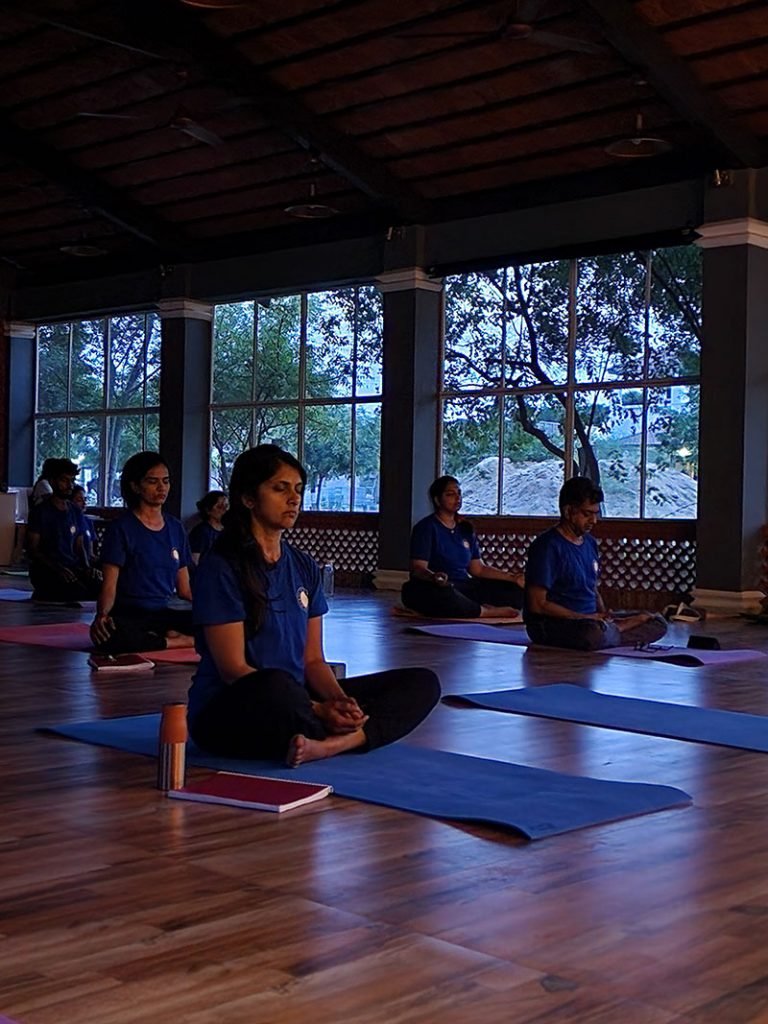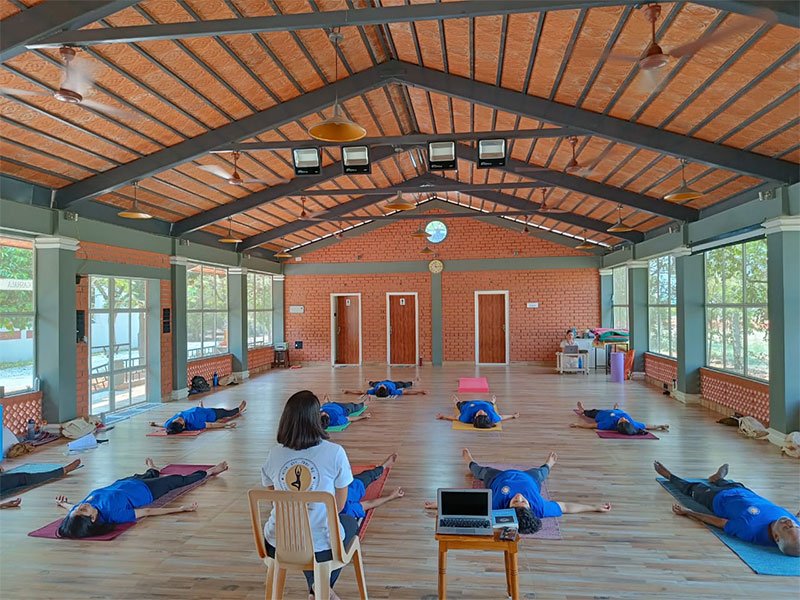
According to the Yogic texts and the Upanishads, it is during deep sleep that one experiences complete relaxation. It is during this time that our thoughts are completely suspended making the experience of deep sleep blissful. We are reluctant to come out of this experience and hence set multiple alarms to wake up. During that period even five minutes of extra time in bed seems more precious than anything else.
However, reaching this state is becoming increasingly difficult. For most of us in today’s world, we struggle to fall asleep. With the fast paced lives that we live in, our brain is ever active and even when we go to bed, we cannot switch off. It is like a machine running in overdrive. This leaves most of us feeling more tired when we wake up. People take medications, go to expensive retreats or try many methods to get that much needed relaxation. “Digital detox” has become the new mantra.
Who’s your sleep’s real enemy?
Before discussing the yogic take on relaxation, let us enquire about some common causes of distractions and also some basic guidelines to follow.
The most obvious of all causes that we may be able to think of are our mobile phones or television or our laptops. Though it is easy to blame these gadgets, as we are doing an honest inquiry to look at this problem, we have to delve a bit deeper. We have to understand what it is that keeps us wanting to look at these gadgets to start with? What is it that prevents us from truly shutting our minds off from the world? Is it the fear of missing out on something important? Is it the anxiety that if a certain task or job is not completed on time then something bad might happen? Or is it that we have become too dependent on the external stimuli to get short term pleasure?
Understanding Stress
Yoga deals with this by first addressing stress, which is the root of the problem. Stress gets stored at three levels in our body, namely, the muscular level, the emotional level and the mental level. Sleep offers some amount of relaxation at the muscular level, however, complete relaxation and peace cannot be enjoyed unless we are able to relax emotionally and mentally. Our deep rooted mental patterns, our joys and sorrows, loves and hates and traumas that we may have gone through in our lives, they all get stored deep within us at the subconscious level. These experiences dictate our choices, behaviour and our moods to a great extent.
Therefore, Yoga systematically offers techniques to address stress and resolve our deep rooted emotional issues enabling us to be at peace with ourselves and those around us.
Balance your Sensory Diet
All that we consume through our five senses affects our mind. Therefore this should be carefully monitored and any activity that may disturb our mind should be avoided especially before bed time.
Among these sensory intakes, food plays a big role in shaping not only our body but also our minds. There are certain types of food that will make you feel dull and lethargic. Certain foods that act as stimulants and can provide a lot of nervous energy to your body. Both these food types are something to avoid past sunset. The sounds we listen to, the conversations we engage in or what we watch as entertainment also has an effect on our mind. If you are watching a scary movie before you sleep then it is highly likely that you may end up having horror dreams.
De-Stressing Tools and Yoga Nidra
As every individual is unique, therefore, our mental make-up and our life challenges are different. Thus many practices are given a number of texts on Yoga. One of the simple methods prescribed is to simply watch your thoughts, if that becomes too overwhelming then you can start by watching your breath. Once you have reached a state of some calm, you could then prod your mind a bit to see what your worries are, and how you can practically resolve them.

This is like an extended Shavasana wherein, the practitioner relaxes the whole body while retaining the awareness throughout the session. The simplest form of Yoga Nidra that one can practice at home is discussed below.
- Please lie down in Shavasana. Keep your body comfortable and relaxed.
- Systematically take your focus to each part of your body starting from your toes and tense them while inhaling and relax them while exhaling.
- Repeat this for each body part all the way to the tip of your head.
- In the end take a deep breath and tense your whole body and exhale, relaxing the body completely.
- Then keep lying down on the mat till you naturally feel like getting up. Please do not be in a hurry to get up. Allow your body to rest.
- Before getting up, turn to your side, lie down in the fetal position for sometime and then come to a sitting position.

There are many levels to Yoga Nidra and it is said to be very helpful in connecting to your subconscious level and resolving many deep rooted problems as well as getting over old habits and patterns. However, these practices should be performed under expert guidance and one should be very careful while undergoing deeper levels of Yoga Nidra as we are dealing with the subconscious in this practice.


